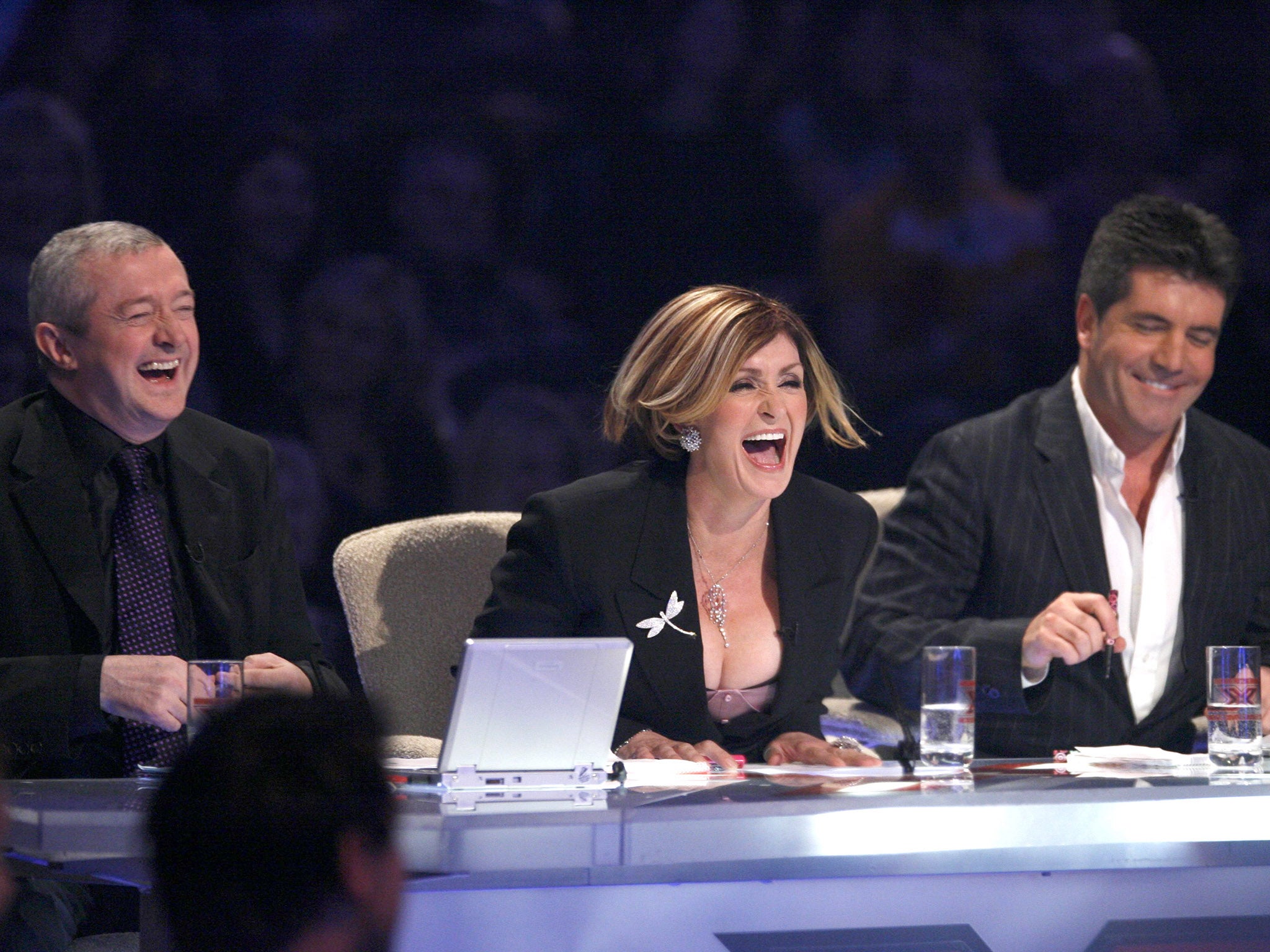The X Factor was brilliant but cruel – it should have been axed years ago
Simon Cowell’s talent show – which has just been axed by ITV – didn’t just dominate television but determine how the country functioned, writes Adam White. But it left a trail of wreckage in its wake, and many of its vulnerable contestants with nowhere to turn


I think about the chicken man a lot. It was the first series of The X Factor, and an auditionee named Robert Unwin told the show’s judges – Simon Cowell, Sharon Osbourne and Louis Walsh – that he worked in a chicken factory, then sang a high-pitched rendition of Aqua’s “Barbie Girl”. He was laughed at, Cowell dubbed him the worst singer he’d ever heard, and a crestfallen Unwin retreated back to his day job. It was always unclear whether Unwin was trolling the show or whether he was genuinely vulnerable. But The X Factor loved that sort of thing – that uncomfortable grey area between entertainment and exploitation. Nobody, from those on screen to us watching at home, emerged clean.
Today (29 July), ITV confirmed that there are “no current plans” to bring back The X Factor, essentially cancelling the show after 17 years. It shouldn’t come as a surprise. From an industry standpoint, the show had been circling the drain for years, wildly out of step with modern music and incapable of creating stars. Winners and finalists of its most recent series included Dalton Harris, Louisa Johnson and Rak-Su. You’d have to go back to 2011 to find an X Factor alumni, in that case Little Mix, who were able to maintain consistent musical success – and it feels wildly misplaced to credit The X Factor for that, and not their own creativity and charisma.
The timing of the show’s cancellation is interesting, though. Numerous X Factor stars have condemned its behind-the-scenes practices in recent months – among them Rebecca Ferguson, Misha B, Cher Lloyd, Jedward, Katie Waissel and former Little Mix member Jesy Nelson – and reflected on the psychological trauma left behind after appearing on the show. The X Factor helped turn dozens of young people into tabloid archetypes – monsters, bullies, divas and cartoons – and then dumped them once their seasons were over, leaving them to salvage whatever was left of their pop-star dreams amid a sea of negative press. It was a “miracle” that no one ended up dead, series seven winner Matt Cardle said earlier this year. “You’re playing with people’s hopes and dreams. If you bring someone up and then cast them aside, that can be enough to drive someone to the edge.”
It’s easy to have positive memories of The X Factor. At its peak – when Cheryl and Dannii Minogue were judges and Konnie Huq was stumbling into every gaffe imaginable while hosting spin-off show The Xtra Factor – it was unmissable. It seemed to dominate not only television but the way the country functioned. Incredibly talented people came and went through its doors, from those we remember (among them Lloyd, Little Mix, Alexandra Burke, Leona Lewis and at least half of One Direction), to the many who seemed to get stuck in record-label limbo once their series were over (Tamera Foster, Misha B, Ella Henderson, and many, many more). It dictated the charts, style trends, and the hormones of multiple generations of teenagers. Every boy wore River Island chinos because of Harry Styles, every middle-class white girl went out with a bird’s nest for hair because of Diana Vickers. Beyoncé duetted with Burke in the series five finale, because the show was just that powerful a marketing tool.
But there was always a sliver of ugliness to it. The X Factor didn’t grow meaner over time – cruelty was etched into its foundation. Sharon Osbourne would rant about the apparent evils of series one winner Steve Brookstein and later make crude jokes about Minogue. Worse was the show’s endless parade of the eccentric, the overweight, the foreign-accented and the unattractive in auditions – all of them lined up to be mocked, debased and manipulated.
Along with the chicken man, I think a lot about the Pink tribute act Zoe Alexander, who told the show’s judges during the ninth series that she wanted to step away from impersonating a pop star and actually become one. She then sang a Pink song, which confused the judges. “But you told me to sing a Pink song,” Alexander pleaded, her eyes darting off-camera as the live studio audience gasped and giggled. “We never told you to sing a Pink song,” replied judge Tulisa. “Did you hear that come out of any of our mouths?”
But, of course, Alexander meant the producers. She got angry, threw her microphone to the floor, and became a spectacle. An Ofcom investigation into the incident determined that Alexander was “not edited unfairly”, but Alexander herself maintains that she was exploited. “Reality TV takes advantage [of] people,” she said last year. “It both exploits existing [mental health issues] and creates mental health issues. It psychologically profiles people by finding out their weaknesses and exploiting them.”

The show’s defenders tend to argue that Alexander, and any of the thousands of people who auditioned for The X Factor over its 15-series run, knew what they were getting into, and therefore shouldn’t have been surprised if they were treated horrendously. But when that’s the trade-off – either rare success or some kind of life-altering trauma – how could anyone justify a programme like this existing?
Join our commenting forum
Join thought-provoking conversations, follow other Independent readers and see their replies
Comments


Bookmark popover
Removed from bookmarks